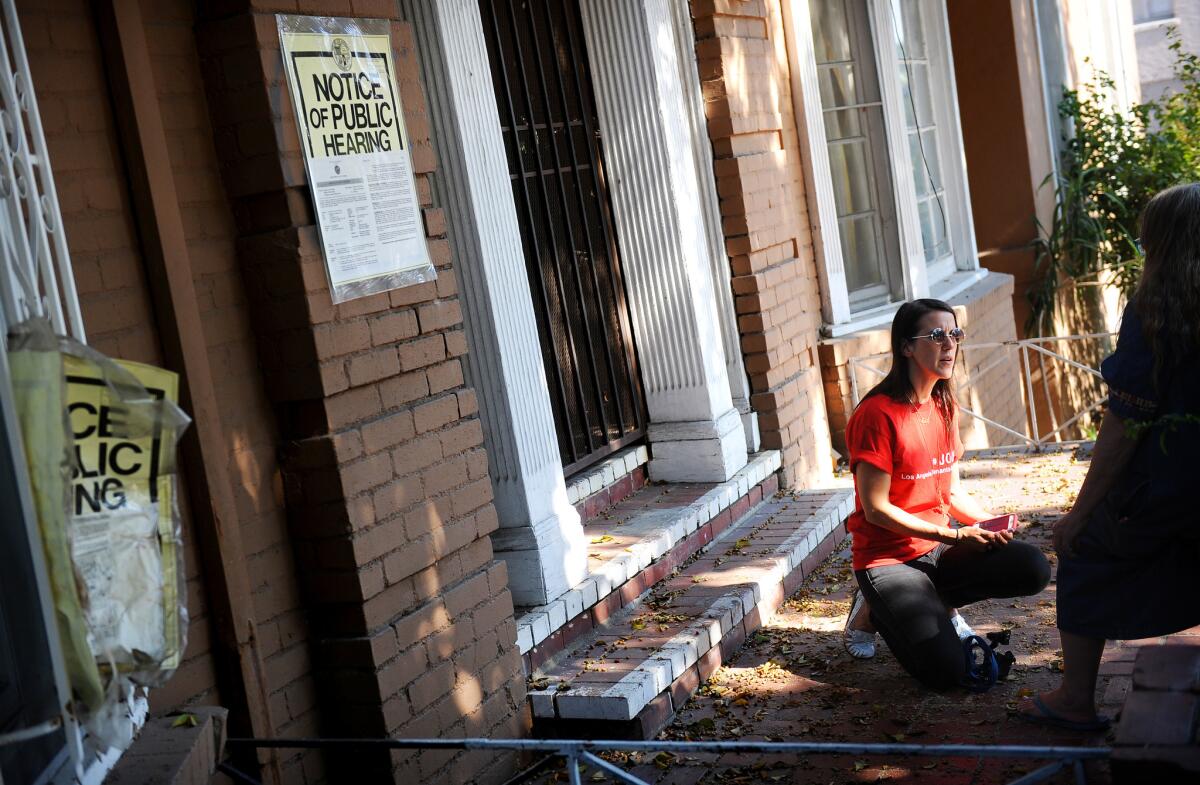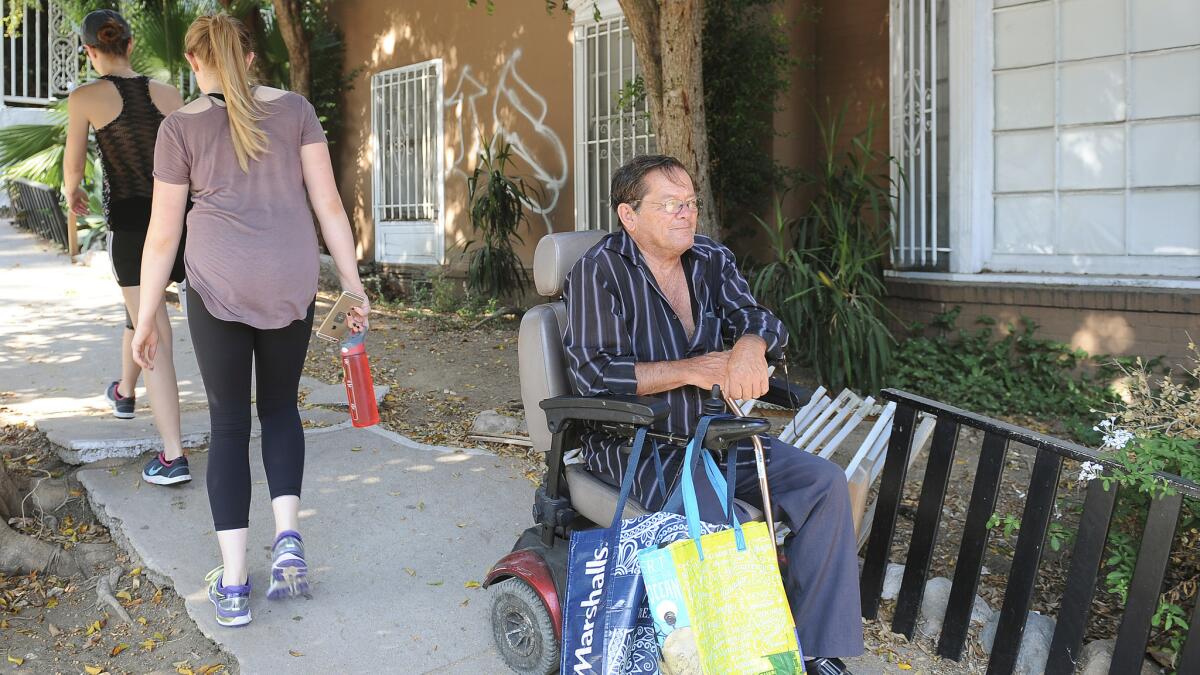Tenant activists lose fight against Hollywood building’s conversion into a hotel

A Hollywood apartment building is on its way to becoming a hotel after Los Angeles lawmakers rejected the arguments of tenant activists who warned that it would worsen the city’s housing crisis.
Property owner David Lesser plans to renovate the vacant building on Cherokee Avenue, a short walk from the bustle of Hollywood Boulevard, and turn it into a boutique hotel with two dozen rooms.
The City Council paved the way for the project to move forward Wednesday, the day after one of its committees rejected an appeal by Sylvie Shain, a Hollywood resident who said the city had not properly weighed the effects of losing the apartments.
The decision to deny the appeal and approve the environmental review for the project comes as Los Angeles politicians face mounting criticism over soaring rents – and are planning to ask voters to pay higher taxes to address the homelessness crisis.
During heated hearings at City Hall this month, Shain and other Hollywood residents argued that it was paradoxical for city leaders to publicly proclaim the need to save and build housing for working Angelenos, then allow real estate developers to wipe away apartments covered by rent stabilization rules.
Loss of homes, separation of families, people living in cars and on sofas – good God, what does it take for you to wake up?
— Annie Gagen, Hollywood resident
“Loss of homes, separation of families, people living in cars and on sofas – good God, what does it take for you to wake up?” Hollywood resident Annie Gagen asked at a Tuesday meeting.
Renters were removed from the Cherokee Avenue building roughly three years ago under the Ellis Act, a state law that allows landlords to evict tenants from buildings that fall under rent control if they plan to take the property off the rental market.
In the aftermath, some of the former tenants – many of whom paid $650 per month or less for their apartments – say they have struggled to find housing they can afford.
“I’ve been homeless ever since,” said Albert McCowen, a disabled military veteran who said he now “sofa surfs” with friends and relies on a food bank. “When I was living there, I could make my bills. I could help my kids…. When they took that building off the market, that’s when all my problems started financially.”
Shain, who lives in another Hollywood building that is being turned into a hotel, argued that the city needed to do a more exhaustive review of how the hotel plan would affect the neighborhood – including traffic, safety and the displacement of apartment residents. Failing to do so, she said, would set a dangerous precedent that would lead to more housing being eliminated.
But city planners said the hotel conversion would not have a significant effect on the area. California law doesn’t allow the city to consider purely economic and social effects when weighing the environmental consequences of a project, attorneys representing Lesser argued. And Lesser and his representatives said he had complied with city and state laws during and after the evictions.

“The owner has gone above and beyond as a matter of both good faith, letter of the law, and just frankly human decency,” said Dana Sayles, one of his representatives.
Two members of a council committee initially balked at the hotel plan, raising concerns about what had happened to tenants.
Among those concerns: Half of the tenants had not received money to help them relocate because of a city exemption tied to the fact that the owner was planning to build condominiums. But those condos were never built.
Lesser and his representatives said he didn’t move forward with the planned condos because of the economic downturn and had not acted in bad faith. But Councilman Gil Cedillo said he was troubled that a building owner could avoid paying crucial fees to tenants by making – then changing – his plans.
“I don’t want to say it’s a bait and switch, but … the final product is that the tenants aren’t receiving the remedies that were due them,” Cedillo said Tuesday. He later called it “a miscarriage of justice.”
Other lawmakers on the council committee agreed that the nonpayments were troubling. But Councilman Felipe Fuentes said the solution was to rewrite city regulations about when building owners could avoid paying relocation money, not to turn down the planned project.
Los Angeles council members also tend to fall in line with the lawmaker who represents the neighborhood where a development project is planned. Councilman Mitch O’Farrell, who represents that part of Hollywood, does not back the hotel plans but saw no legal basis for granting the appeal, his planning director, Chris Robertson, told lawmakers last week.
That angered residents such as Luis Saldivar, a member of the Hollywood United Neighborhood Council. At the Tuesday committee meeting, he warned O’Farrell that he was on notice.
“If you want to get reelected next year,” Saldivar said, “you’d better start representing the people who elected you.”
ALSO
City gardener blasts litterbugs in curse-filled tirade after San Francisco Pride celebration
Want to play Superman on Hollywood Boulevard? You might need a pass for that
Californians return from trip and find decomposing body on their front lawn
More to Read
Sign up for Essential California
The most important California stories and recommendations in your inbox every morning.
You may occasionally receive promotional content from the Los Angeles Times.











